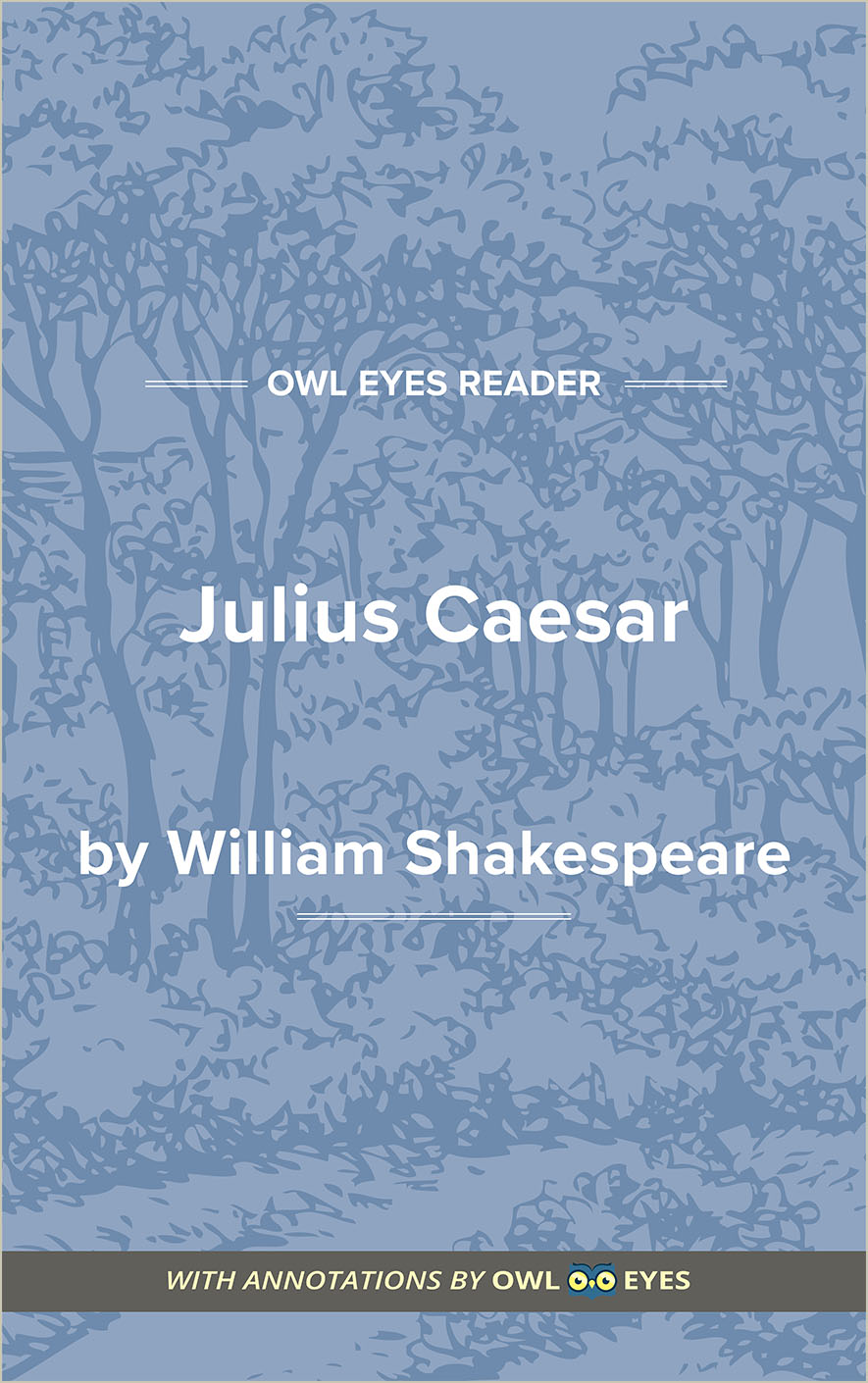Analysis Pages
Imagery in Julius Caesar
Imagery Examples in Julius Caesar:
Act I - Scene III
🔒"When these prodigies Do so conjointly meet, let not men say(30) “These are their reasons; they are natural,”..." See in text (Act I - Scene III)
Act II - Scene I
🔒"O, pardon, sir, it doth, and yon grey lines That fret the clouds are messengers of day...." See in text (Act II - Scene I)
"Since Cassius first did whet me against Caesar I have not slept...." See in text (Act II - Scene I)
Act V - Scene I
🔒"Why, now, blow and, swell billow, and swim bark! The storm is up, and all is on the hazard...." See in text (Act V - Scene I)
Act V - Scene III
🔒"This day I breathed first: time is come round, And where I did begin, there shall I end;(25) My life is run his compass...." See in text (Act V - Scene III)
Act V - Scene V
🔒"Now is that noble vessel full of grief,(15) That it runs over even at his eyes...." See in text (Act V - Scene V)

